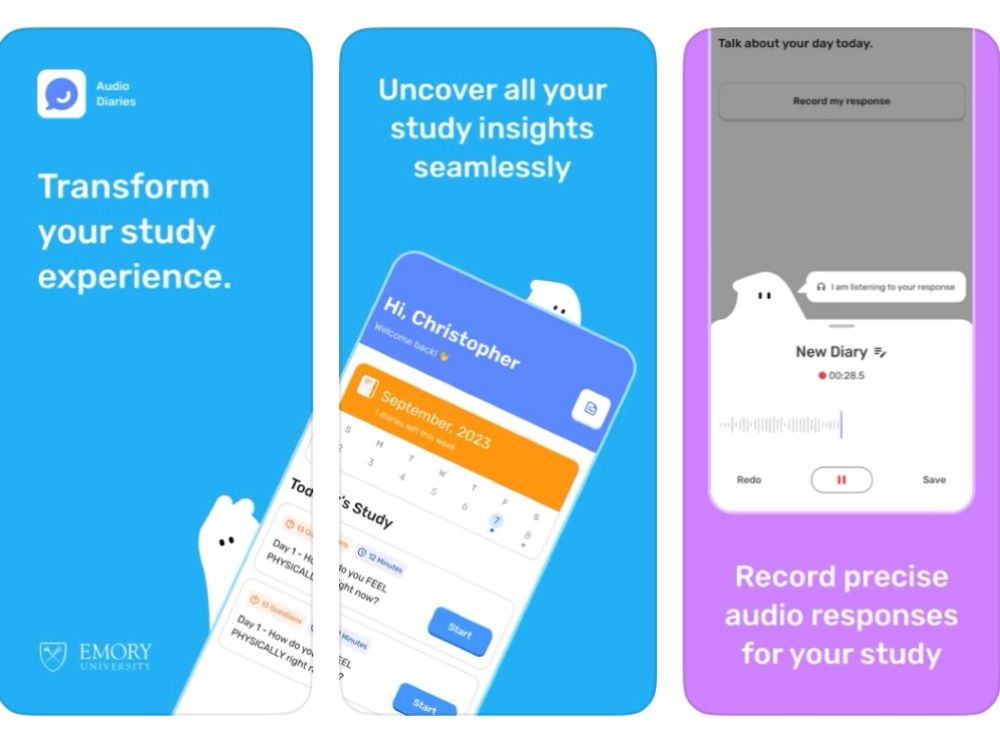New Mobile App “Fabla” Transforms Daily Diary Research for Depression Treatment Clinical Trial

In a groundbreaking step for behavioral health research, Deanna Kaplan, PhD, Departments of Spiritual Health and Preventive Medicine at Emory University, has partnered with Georgia Clinical & Translational Science Alliance’s (Georgia CTSA) AppHatchery to develop Fabla, a mobile app that simplifies the way researchers collect real-world data. Designed to capture voice entries from users throughout their daily lives, Fabla offers a convenient and secure method to track emotional and psychological experiences in real time.
Fabla is the first smartphone application of its kind to enable researchers to gather speech biomarkers—vocal indicators linked to mental health—directly from participants in their natural environments. Unlike traditional diary methods that rely on written entries or periodic surveys, Fabla allows users to speak freely into their phones, providing richer and more immediate insights into their daily experiences.
Currently being used in a clinical trial, Fabla is helping researchers better understand the vocal patterns associated with depression. By analyzing these speech biomarkers, scientists hope to identify early warning signs and develop more effective interventions and treatments.
“Fabla represents a major innovation in how we study mental health,” said Dr. Kaplan. “With the support of Georgia CTSA’s AppHatchery, we’ve created a tool that not only enhances data collection but also empowers participants to engage more naturally and consistently.”
“Recent testing shows a significant increase in daily diary completion for participants using Fabla versus those who used a written diary. This success reinforces an AppHatchery priority of constantly communicating with a clinical team throughout the creation process, resulting in a solution that brings value to both researchers and study participants,” adds Santiago Arconada Alvarez, MS, Associate Director, Georgia CTSA AppHatchery.
This collaboration marks a significant advancement in the intersection of mobile technology and mental health research, offering promising potential for broader applications in behavioral science.